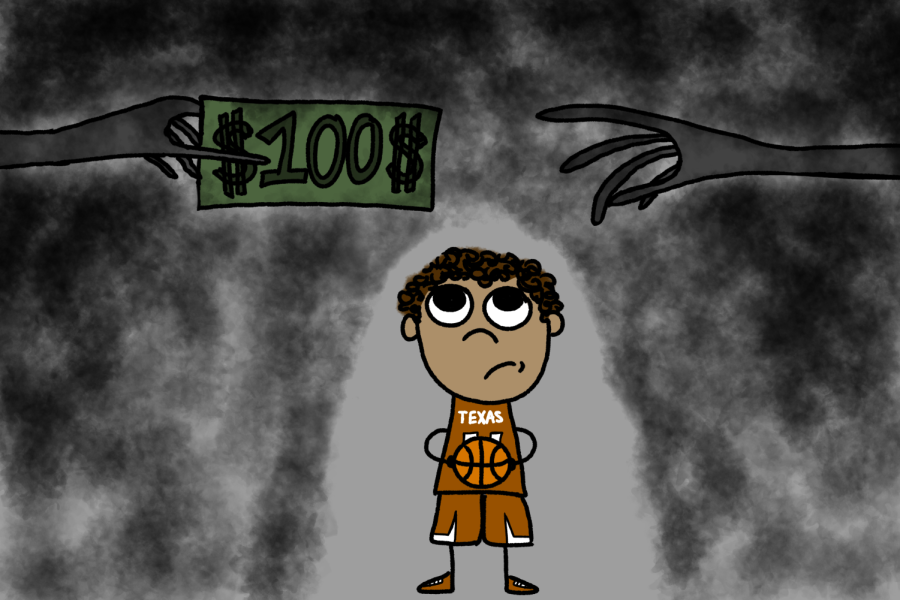What Legalizing Sports’ Betting Would Mean for Texans
February 16, 2023
While universities like Louisiana State University and Michigan State University are getting sponsored by Caesar Sportsbook, a sports gambling company, Texas is still divided on whether to legalize sports betting. Only 36 states across the country have legalized sports betting, and Texans are hoping to join this majority.
In light of the Texas Legislature session recently revisiting the online sports betting bill, there has been a renewed push to legalize sports betting. The Sports Betting Alliance, joined by the Dallas Cowboys, DraftKings, the Houston Astros and others, aims to legalize sports gambling to increase Texas’ state tax revenue, advance individual liberties and protect Texans from illegal offshore betting websites.
The Lone Star State is notorious for sports, with loyal and devoted fan bases that contribute to a significant portion of the state’s revenue bonds. However, many people, like Dallas Cowboys owner Jerry Jones, believe that Texas legislation is missing out on an opportunity to make more money for Texans.
Since the 2018 Supreme Court ruling that allowed the states the choice to legalize sports betting or not, Texas legislators have been against increased gambling. However, there are notable exceptions to illegal gambling – such as the lottery, horse and greyhound racing and bingo.
The moral drawing of gambling by Texas politicians seems somewhat tenuous considering Texas’ rugged individualistic politics, which is marked by self-reliance outside of government assistance.
Kirk Goldsberry, Assistant Professor of Instruction & Associate Director at the Center for Leadership and Ethics, believes that criminalizing sports betting is ironic considering Texas’ primary beliefs.
“Texans who like to gamble are looking around the country and saying, ‘Why are all these other states allowed to have the freedom to (sports gamble) and in my state, I cannot?’” said Goldsberry. “The idea of liberty and freedom in Texas is such a hardcore part of the Texan ethos, but it looks like we’re going to be one of the last states to legalize certain things.”
Some Texas politicians, like Lt. Gov. Dan Patrick, have previously said that there is not enough money in the industry to consider legalizing sports gambling. However, states who have legalized sports betting have experienced huge gains. In 2022, Americans ventured over $73 billion dollars legally on sports.
There are also hesitations about gambling addictions regarding sports betting. However, the accessibility of gambling has shifted from Vegas to cell phones; Texans are still gambling on games, but using risky gambling websites or traveling to neighboring states, such as Oklahoma and Louisiana, to do so.
Benjamin Castenada, advertising senior & Longhorn Hellraiser, is a frequent sports gambler who often bets on Texas Athletics and other Texan colleges games.
“For the state of Texas to have this many (professional) sports teams – three basketball teams, two football teams – there’s a market for gambling. In collegiate athletics, major brands like Texas, Texas A&M … Texas Tech football and basketball, in particular, because of what happens during March Madness in trying to create a perfect bracket and all the betting and gambling that goes into it.”
Castenada also believes that Texas legalizing sports betting would make sports gambling safe and less risky with access to sportsbooks, which help make informed bets.
Legalizing sports gambling in Texas is a controversial topic with many important factors to consider. However, barring Texas’ political outspoken stance on individual liberties, it would only make sense to legalize sports betting.
DuBois is a public relations and sociology sophomore from Killeen, Texas.












